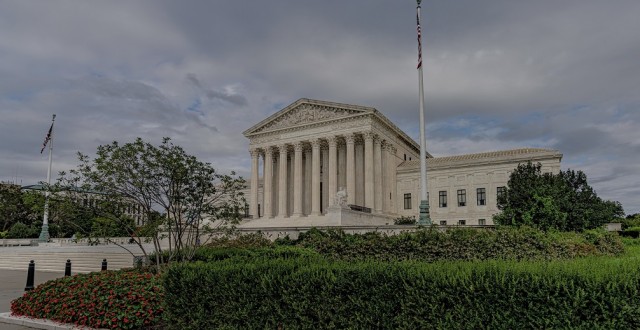
- Mediation
- Arbitration
- Court Neutrals
- Online Dispute Resolution
- Technology
- Court Decisions
- More
- Legislation
- Healthcare
- Guest Posts
- John DeGroote
- John C. Fleming
- Rick Freeman
- Professor Peter Friedman
- Honorable W. Royal Furgeson, Jr.
- James M. Gaitis
- Laura A. Kaster
- Professor John Lande
- Philip J. Loree, Jr.
- Michael McIlwrath
- F. Peter Phillips
- Professor Alan Scott Rau
- Professor Thomas J. Stipanowich
- Professor S.I. Strong
- Richard Webb
- Glen M. Wilkerson
- International arbitration
- Regulation
- Sports and Entertainment
 JAMS Welcomes Karl Bayer to its Panel of NeutralsJAMS, the world’s largest private alternative dispute resolution (ADR) provider, is pleased to announce that Karl Bayer
JAMS Welcomes Karl Bayer to its Panel of NeutralsJAMS, the world’s largest private alternative dispute resolution (ADR) provider, is pleased to announce that Karl Bayer Class Action Waivers in Arbitration Agreements: The Twenty-First Century Arbitration Battleground and Implications for the EU CountriesLinda S. Mullenix, Morris & Rita Atlas Chair in Advocacy at the University of Texas School of Law, has written “Class Ac
Class Action Waivers in Arbitration Agreements: The Twenty-First Century Arbitration Battleground and Implications for the EU CountriesLinda S. Mullenix, Morris & Rita Atlas Chair in Advocacy at the University of Texas School of Law, has written “Class Ac Picking the Proper Technological Tool for Problem-Solving in ArbitrationProfessor Amy J. Schmitz, John Deaver Drinko-Baker & Hostetler Chair in Law and Co-Director of the Translational Data An
Picking the Proper Technological Tool for Problem-Solving in ArbitrationProfessor Amy J. Schmitz, John Deaver Drinko-Baker & Hostetler Chair in Law and Co-Director of the Translational Data An SCOTUS to Resolve Circuit Split Over Transportation Worker Exemption in the FAAToday marks the start of the United States Supreme Court’s new term. During the term, the nation’s highest court will re
SCOTUS to Resolve Circuit Split Over Transportation Worker Exemption in the FAAToday marks the start of the United States Supreme Court’s new term. During the term, the nation’s highest court will re
Recent Posts
Fifth Circuit Holds Arbitrability is a Gateway Issue Where Arbitration Agreement Exists
The Fifth Circuit Court of Appeals has ordered a worker’s Fair Labor Standards Act (“FLSA”) lawsuit to arbitration.
Continue reading...Delaware Bankruptcy Court Holds Employer’s Class Arbitration Waiver Violates NLRA
In a case of first impression, a Delaware bankruptcy court has ruled that a class-action waiver included in an employer’s arbitration agreement violates the National Labor Relations Act (“NLRA”) despite containing a 30-day opt-out clause.
Continue reading...State Chart of Relevant Rules or Provisions Governing Mediator Provision of Legal Advice
Eleanor Crosby Lanier, Managing Attorney for the Mediation Practicum at the University of Georgia School of Law, has compiled a useful resource entitled “State Chart of Relevant Rules or Provisions Governing Mediator Provision of Legal Advice,” University of Georgia School of Law Legal Studies Research Paper No. 2016-37.
Continue reading...Texas Insurer Abandons Mandatory Mediation-Arbitration Endorsement Proposal
The Texas Farm Bureau has reportedly abandoned a proposal that would have allowed insureds to relinquish their right to sue the company in the event of a claim dispute in exchange for a lower homeowners’ policy premium.
Continue reading...Arbitration
Professor Stephen F. Ross, Lewis H. Vovakis Distinguished Faculty Scholar and Director of the Penn State Institute for Sports Law, Policy, and Research at Penn State Law, and Roy Eisnehardt, Lecturer in Sports Law at the University of California, Berkeley School of Law, have published “Clear Statement Rules and the Integrity of Labor Arbitration,” Penn State Law Research Paper No. 6-2017; Arbitration Law Review, Forthcoming.
Continue reading...Mediation
By Holly Hayes As discussed in a previous post, an attempt has been made to explore confidentiality in the Uniform Mediation Act (UMA) and provide an updated list of the states who have implemented the Act, those where legislation is pending, states who have rejected the act and those who have chosen to adopt similar bills. The Uniform Mediation Act, constructed by committees from the National Conference of Commissioners on Uniform State Laws and the American Bar Association’s Section of Dispute Resolution, was last revised in 2003 to bring uniformity to mediation across the states. A primary purpose of the Act is to provide “a privilege that assures confidentiality in legal proceedings.” The provision of this privilege is intended to promote full disclosure of the issues to the mediator and hopefully ensure a higher level of success for the mediation and greater satisfaction for the participants. Successful mediations are expected to promote greater community confidence in the mediation process resulting in more dispute resolution through mediation. Section 8 of the UMA states: SECTION 8. CONFIDENTIALITY. Unless subject to the [insert statutory references to open meetings act and open records act], mediation communications are confidential to the extent agreed by the parties or provided by other law or rule of this State. Matt Brown from the International Institution for Conflict Prevention & Resolution (CPR) summarizes the confidentiality section of the UMA as follows: The UMA drafters hoped the Act would promote several themes. Besides the uniform practice of mediation, the drafters wanted the UMA to encourage candor. Section Four creates a privilege that provides confidentiality, except for rare exceptions, throughout the mediation process. Confidentiality encourages parties to speak candidly, which is essential to successful mediation. The drafters also tried to “encourage the policy of fostering prompt, economical, and amicable resolution of disputes in accordance with principles of integrity of the mediation process, active party involvement, and informed self-determination by the parties.” These policies and principles should provide higher participant satisfaction levels as well as higher success levels. The drafters also wanted to advance the policy that the authority to make decisions concerning the dispute lies in the hands of the parties, not the mediator. The mediator is just there to facilitate the process. Many of these themes are reflected throughout Sections 4-6 of the UMA. Eleven states have enacted the Uniform Mediation Act: Nebraska in May 2003; Illinois following nearly a month later; with New Jersey, Ohio, Iowa, Idaho, South Dakota, Washington, Utah, the District of Columbia and Vermont more recently. The UMA has been introduced in five states: Nevada, Hawaii, Minnesota, New York and Rhode Island. Three states rejected the UMA:Connecticut, Indiana and Massachusetts. Eight states adopted similar bills: Delaware, Montana, Nevada, Oregon, Wyoming, New Mexico and Florida. Florida’s statute §44.406 provides confidentiality and those who “knowingly and willfully” disclose mediation communications will be liable for damages. The statute provides remedies including attorney’s fees, mediator’s fees, equitable relief, compensatory damages and costs incurred in the mediation. The Florida rules are available here. Confidentiality in mediation must be protected. We welcome any comments on this topic. Technorati Tags: ADR, law, mediation Holly Hayes is a mediator at Karl Bayer, Dispute Resolution Expert where she focuses on mediation of health care disputes. Holly holds a B.A. from Southern Methodist University and a Masters in Health Administration from Duke University. She can be reached at: holly@karlbayer.com.
Continue reading...Healthcare Disputes
Legal Research
About Disputing
Disputing is published by Karl Bayer, a dispute resolution expert based in Austin, Texas. Articles published on Disputing aim to provide original insight and commentary around issues related to arbitration, mediation and the alternative dispute resolution industry.
To learn more about Karl and his team, or to schedule a mediation or arbitration with Karl’s live scheduling calendar, visit www.karlbayer.com.














